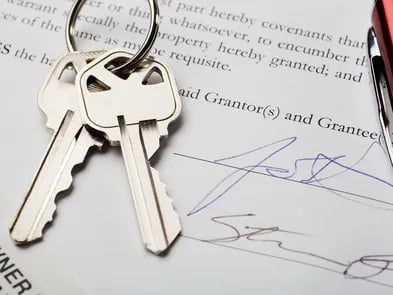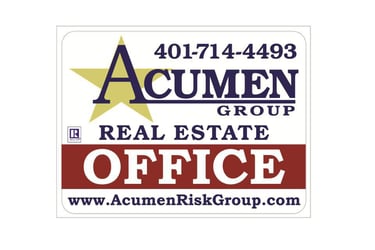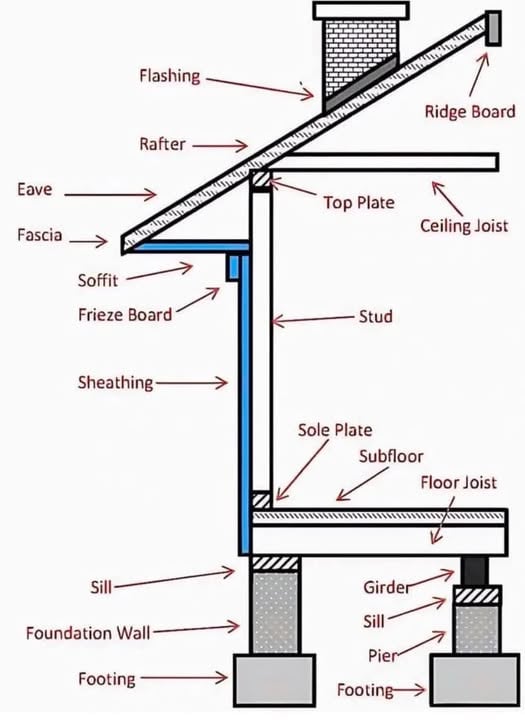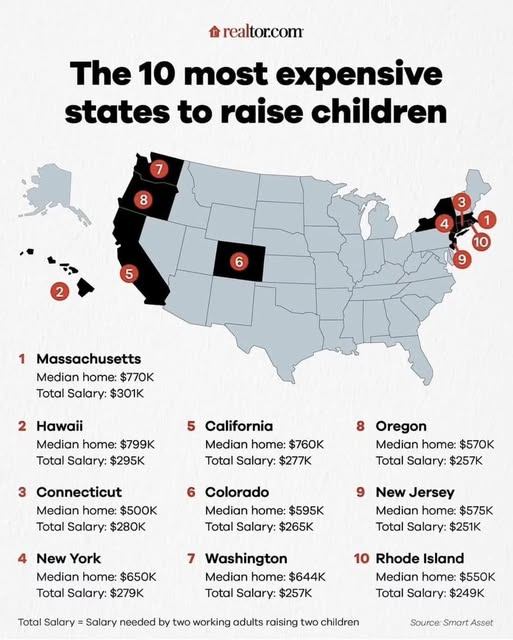Acumen Risk Group
Acumen Group Real Estate
Your trusted partner for all commercial and residential real estate and insurance needs in Rhode Island and Massachusetts.
Comprehensive Insurance and Real Estate Services
With over forty-six years of experience, we proudly serve as a full-service real estate brokerage and an insurance and risk management agency in Rhode Island and Massachusetts. Our extensive knowledge of the local markets allows us to provide tailored solutions for all your real estate needs, whether you're buying, selling, or investing in properties. In addition to our real estate services, our insurance and risk management expertise ensures that you are protected against unforeseen challenges. We are committed to delivering exceptional service and building lasting relationships with our clients, guiding them through every step of their real estate and insurance journeys. Trust us to be your reliable partner in navigating the complexities of the real estate landscape while safeguarding your assets.




Insurance Solutions
Providing commercial and personal lines insurance tailored to meet your specific needs and requirements.
Real Estate Expertise
Specializing in commercial, residential, and investment properties to help you achieve your real estate goals.
Thinking about SELLING your property?
We know our local markets. We will guide you from listing to closing. Contact us today and learn how we use the latest internet technology to market your property.
We understand that you have many questions. For a variety of reasons, selling a property that is your home, could be a very emotional endeavor. We would be happy to address all of your questions and concerns, and provide a free market analysis of your property.
Note: This site is under construction.
We provide insurance for: Homeowners, Landlords, Business Owners, Land Owners, Residential and Commercial Tenants, Churches and Synagogues, and much more.


https://www.fdic.gov/consumers/loans/prevention/rescue/images/rescue.pdf
The "ACUMEN ADVANTAGE"
Because we thoroughly and diligently work to exceed the needs and wants of our Sellers and Buyers, we have HAPPY clients. Please realize that you are never alone with the Acumen Group Real Estate TEAM. We work with various disciplines including – Insurance Agents, Mortgage Brokers, Property Inspectors, Tax Professionals, and Attorneys. Kindly consider contacting our growing agency for Residential or Commercial properties in RI & MA. As a full-service real estate team, we work with buyers, sellers, and investors in real estate transactions spanning all price ranges and property types.
Credentialed Advocates for YOU.
Here are some various functions that the Acumen Group performs routinely:
Comparative Market Analysis (CMA)


We help our clients to value their property through a thorough CMA, Comparative Market Analysis reports using current listing price data and past sold comparable property sales.
Search Assistance to Understand the Market


It is important that we help you in your search to learn about currently listed similar properties in your area. Only by knowing the competition can you make improvements and set a competitive listing price.
A Marketing Plan that Works


Acumen Risk Group LLC has perfected a marketing plan for every type of property in the Souther New England real estate markets. Some things work better in some areas and price ranges than others. We’ll show you a specific plan for your property.
Thorough and Objective Home Evaluation


We consider it our obligation to help you to thoroughly and objectively evaluate your home’s condition and features to properly assess how it competes in the current market.
Proper List Pricing


A property that is not priced well will either leave money on the table for our sellers or cause the property to linger on the market. We do thorough CMA reports to help our sellers value their properties with realistic market expectations.
Market Updates


Markets don’t just change monthly; they change daily in many instances. As new listings come on the market and others sell, the supply/demand ratio changes and your price may need to be adjusted. Acumen Risk Group LLC provides you with regular market updates to keep you in the loop.
Price Negotiations


We do the marketing and property valuation process well, and that means you’ll be seeing a buyer with a contract soon. We are with you every step of the way in the contract price negotiations and will work to get you the top price possible with the fewest concessions.
Contract to Closing Process


There are more than 100 tasks, objectives and deliveries involved in taking a seller side transaction from contract through a successful closing. We are on top of all of them to make sure you leave the closing table with a check to move on with life.
Inspections and Repair Negotiations


The negotiations rarely end with the price. Once the buyers complete their inspection and document examination processes, they often object to things discovered and request corrective action that involves expense to the seller. We are here to work with you every step of the way and help you to keep the deal alive without “giving up the farm.”
Whether you’re looking to buy or sell commercial properties, business assets, industrial spaces, investment opportunities, land, residential homes, or institutional buildings, our dedicated team is here to assist you every step of the way. We understand the complexities of the real estate market and strive to provide tailored solutions that meet your specific needs. With our extensive network and market expertise, we will help you navigate the purchasing process or connect you with potential buyers, ensuring a smooth and successful transaction. Trust us to be your reliable partner in achieving your real estate goals, no matter the type of property involved. Let us help you unlock the potential of your real estate ventures today.






Insurance Solutions
All Lines of Commercial and Personal Insurance


Investment Properties


Negotiation is one of our specialties.
184 things a REALTOR® does for you
Listed here are nearly 200 typical actions, research steps, procedures, processes and review stages in a successful residential real estate transaction that are normally provided by full service real estate brokerages in return for their sales commission. They reflect the level of skill, knowledge and attention to detail required in today’s real estate transaction, underscoring the importance of having help and guidance from someone who fully understands the process – a REALTOR®.
And never forget that REALTORS® are pledged to uphold the stringent, enforceable tenets of the REALTOR® Code of Ethics in their professional dealings with the public. Not every real estate licensee holds REALTOR® membership. Make sure yours does!
Pre-Listing Activities
1. Make appointment with seller for listing presentation
2. Send seller a written or e-mail confirmation of listing appointment and call to confirm
3. Review pre-appointment questions
4. Research all comparable currently listed properties
5. Research sales activity for past 18 months from MLS and public records databases
6. Research "Average Days on Market" for this property of this type, price range and location
7. Download and review property tax roll information
8. Prepare "Comparable Market Analysis" (CMA) to establish fair market value
9. Obtain copy of subdivision plat/complex lay-out
10. Research property's ownership & deed type
11. Research property's public record information for lot size & dimensions
12. Research and verify legal description
13. Research property's land use coding and deed restrictions
14. Research property's current use and zoning
15. Verify legal names of owner(s) in county's public property records
16. Prepare listing presentation package with above materials
17. Perform exterior "Curb Appeal Assessment" of subject property
18. Compile and assemble formal file on property
19. Confirm current public schools and explain impact of schools on market value
20. Review listing appointment checklist to ensure all steps and actions have been completed
Listing Appointment Presentation
21. Give seller an overview of current market conditions and projections
22. Review agent's and company's credentials and accomplishments in the market
23. Present company's profile and position or "niche" in the marketplace
24. Present CMA Results To Seller, including Comparables, Solds, Current Listings & Expireds
25. Offer pricing strategy based on professional judgment and interpretation of current market conditions
26. Discuss Goals With Seller To Market Effectively
27. Explain market power and benefits of Multiple Listing Service
28. Explain market power of web marketing, IDX and REALTOR.com
29. Explain the work the brokerage and agent do "behind the scenes" and agent's availability on weekends
30. Explain agent's role in taking calls to screen for qualified buyers and protect seller from curiosity seekers
31. Present and discuss strategic master marketing plan
32. Explain different agency relationships and determine seller's preference
33. Review and explain all clauses in Listing Contract & Addendum and obtain seller's signature
Once Property is Under Listing Agreement
34. Review current title information
35. Measure overall and heated square footage
36. Measure interior room sizes
37. Confirm lot size via owner's copy of certified survey, if available
38. Note any and all unrecorded property lines, agreements, easements
39. Obtain house plans, if applicable and available
40. Review house plans and make copy
41. Order plat map for retention in property's listing file
42. Prepare showing instructions for buyers' agents and agree on showing time window with seller
43. Obtain current mortgage loan(s) information: companies and & loan account numbers
44. Verify current loan information with lender(s)
45. Check assumability of loan(s) and any special requirements
46. Discuss possible buyer financing alternatives and options with seller
47. Review current appraisal if available
48. Identify Home Owner Association manager if applicable
49. Verify Home Owner Association Fees with manager - mandatory or optional and current annual fee
50. Order copy of Homeowner Association bylaws, if applicable
51. Research electricity availability and supplier's name and phone number
52. Calculate average utility usage from last 12 months of bills
53. Research and verify city sewer/septic tank system
54. Water System: Calculate average water fees or rates from last 12 months of bills
55. Well Water: Confirm well status, depth and output from Well Report
56. Natural Gas: Research/verify availability and supplier's name and phone number
57. Verify security system, current term of service and whether owned or leased
58. Verify if seller has transferable Termite Bond
59. Ascertain need for lead-based paint disclosure
60. Prepare detailed list of property amenities and assess market impact
61. Prepare detailed list of property's "Inclusions & Conveyances with Sale"
62. Compile list of completed repairs and maintenance items
63. Send "Vacancy Checklist" to seller if property is vacant
64. Explain benefits of Home Owner Warranty to seller
65. Assist sellers with completion and submission of Home Owner Warranty Application
66. When received, place Home Owner Warranty in property file for conveyance at time of sale
67. Have extra key made for lockbox
68. Verify if property has rental units involved. And if so:
69. ƒ Make copies of all leases for retention in listing file
70. ƒ Verify all rents & deposits
71. ƒ Inform tenants of listing and discuss how showings will be handled
72. Arrange for installation of yard sign
73. Assist seller with completion of Seller's Disclosure form
74. "New Listing Checklist" Completed
75. Review results of Curb Appeal Assessment with seller and provide suggestions to improve salability
76. Review results of Interior Décor Assessment and suggest changes to shorten time on market
77. Load listing into transaction management software program
Entering Property in Multiple Listing Service Database
78. Prepare MLS Profile Sheet -- Agents is responsible for "quality control" and accuracy of listing data
79. Enter property data from Profile Sheet into MLS Listing Database
80. Proofread MLS database listing for accuracy - including proper placement in mapping function
81. Add property to company's Active Listings list
82. Provide seller with signed copies of Listing Agreement and MLS Profile Sheet Data Form within 48 hours
83. Take additional photos for upload into MLS and use in flyers. Discuss efficacy of panoramic photography
Marketing The Listing
84. Create print and Internet ads with seller's input
85. Coordinate showings with owners, tenants, and other Realtors®. Return all calls – weekends included
86. Install electronic lock box if authorized by owner. Program with agreed-upon showing time windows
87. Prepare mailing and contact list
88. Generate mail-merge letters to contact list
89. Order “Just Listed” labels & reports
90. Prepare flyers & feedback faxes
91. Review comparable MLS listings regularly to ensure property remains competitive in price, terms, conditions and availability
92. Prepare property marketing brochure for seller's review
93. Arrange for printing or copying of supply of marketing brochures or fliers
94. Place marketing brochures in all company agent mail boxes
95. Upload listing to company and agent Internet site, if applicable
96. Mail Out "Just Listed" notice to all neighborhood residents
97. Advise Network Referral Program of listing
98. Provide marketing data to buyers coming through international relocation networks
99. Provide marketing data to buyers coming from referral network
100. Provide "Special Feature" cards for marketing, if applicable
101. Submit ads to company's participating Internet real estate sites
102. Price changes conveyed promptly to all Internet groups
103. Reprint/supply brochures promptly as needed
104. Loan information reviewed and updated in MLS as required
105. Feedback e-mails/faxes sent to buyers' agents after showings
106. Review weekly Market Study
107. Discuss feedback from showing agents with seller to determine if changes will accelerate the sale
108. Place regular weekly update calls to seller to discuss marketing & pricing
109. Promptly enter price changes in MLS listing database
The Offer and Contract
110. Receive and review all Offer to Purchase contracts submitted by buyers or buyers' agents.
111. Evaluate offer(s) and prepare a "net sheet" on each for the owner for comparison purposes
112. Counsel seller on offers. Explain merits and weakness of each component of each offer
113. Contact buyers' agents to review buyer's qualifications and discuss offer
114. Fax/deliver Seller's Disclosure to buyer's agent or buyer upon request and prior to offer if possible
115. Confirm buyer is pre-qualified by calling Loan Officer
116. Obtain pre-qualification letter on buyer from Loan Officer
117. Negotiate all offers on seller's behalf, setting time limit for loan approval and closing date
118. Prepare and convey any counteroffers, acceptance or amendments to buyer's agent
119. Fax copies of contract and all addendums to closing attorney or title company
120. When Offer to Purchase Contract is accepted and signed by seller, deliver to buyer's agent
121. Record and promptly deposit buyer's earnest money in escrow account.
122. Disseminate "Under-Contract Showing Restrictions" as seller requests
123. Deliver copies of fully signed Offer to Purchase contract to seller
124. Fax/deliver copies of Offer to Purchase contract to Selling Agent
125. Fax copies of Offer to Purchase contract to lender
126. Provide copies of signed Offer to Purchase contract for office file
127. Advise seller in handling additional offers to purchase submitted between contract and closing
128. Change status in MLS to "Sale Pending"
129. Update transaction management program to show "Sale Pending"
130. Review buyer's credit report results -- Advise seller of worst and best case scenarios
131. Provide credit report information to seller if property will be seller-financed
132. Assist buyer with obtaining financing, if applicable and follow-up as necessary
133. Coordinate with lender on Discount Points being locked in with dates
134. Deliver unrecorded property information to buyer
135. Order septic system inspection, if applicable
136. Receive and review septic system report and assess any possible impact on sale
137. Deliver copy of septic system inspection report lender & buyer
138. Deliver Well Flow Test Report copies to lender & buyer and property listing file
139. Verify termite inspection ordered
140. Verify mold inspection ordered, if required
Tracking the Loan Process
141. Confirm Verifications Of Deposit & Buyer's Employment Have Been Returned
142. Follow Loan Processing Through To The Underwriter
143. Add lender and other vendors to transaction management program so agents, buyer and seller can track progress of sale
144. Contact lender weekly to ensure processing is on track
145. Relay final approval of buyer's loan application to seller
Home Inspection
146. Coordinate buyer's professional home inspection with seller
147. Review home inspector's report
148. Enter completion into transaction management tracking software program
149. Explain seller's responsibilities with respect to loan limits and interpret any clauses in the contract
150. Ensure seller's compliance with Home Inspection Clause requirements
151. Recommend or assist seller with identifying and negotiating with trustworthy contractors to perform any required repairs
152. Negotiate payment and oversee completion of all required repairs on seller's behalf, if needed
The Appraisal
153. Schedule Appraisal
154. Provide comparable sales used in market pricing to Appraiser
155. Follow-Up On Appraisal
156. Enter completion into transaction management program
157. Assist seller in questioning appraisal report if it seems too low
Closing Preparations and Duties
158. Contract Is Signed By All Parties
159. Coordinate closing process with buyer's agent and lender
160. Update closing forms & files
161. Ensure all parties have all forms and information needed to close the sale
162. Select location where closing will be held
163. Confirm closing date and time and notify all parties
164. Assist in solving any title problems (boundary disputes, easements, etc) or in obtaining Death Certificates
165. Work with buyer's agent in scheduling and conducting buyer's Final Walk-Thru prior to closing
166. Research all tax, HOA, utility and other applicable prorations
167. Request final closing figures from closing agent (attorney or title company)
168. Receive & carefully review closing figures to ensure accuracy of preparation
169. Forward verified closing figures to buyer's agent
170. Request copy of closing documents from closing agent
171. Confirm buyer and buyer's agent have received title insurance commitment
172. Provide "Home Owners Warranty" for availability at closing
173. Review all closing documents carefully for errors
174. Forward closing documents to absentee seller as requested
175. Review documents with closing agent (attorney)
176. Provide earnest money deposit check from escrow account to closing agent
177. 176 Coordinate this closing with seller's next purchase and resolve any timing problems
178. Have a "no surprises" closing so that seller receives a net proceeds check at closing
179. Refer sellers to one of the best agents at their destination, if applicable
180. Change MLS status to Sold. Enter sale date, price, selling broker and agent's ID numbers, etc.
181. Close out listing in transaction management program
Follow Up After Closing
182. Answer questions about filing claims with Home Owner Warranty company if requested
183. Attempt to clarify and resolve any conflicts about repairs if buyer is not satisfied
184. Respond to any follow-on calls and provide any additional information required from office files
A home inspection consists of a checklist of potential problems connected to your real estate. While we won’t list all 1,600, here’s a version of a typical inspection:
Grounds: Home inspectors start the inspection by looking for current or future water issues such as standing puddles and faulty grading or downspouts. They inspect landscaping to see if trees and shrubs are in good condition (an arborist will give you a more detailed assessment), and evaluate pathways, retaining walls, sheds, and railings.
Structure: Is the house foundation solid? Are the sides straight? Are the window and door frames square? This part of the inspection is particularly important to a buyer who’s considering an older house.
Roof: A home inspection looks for defects related to the roof, including attic shingles, flashing, and fascia, all of which can cause ceiling drips and leaks in crawl spaces; loose gutters; and defects in chimneys and skylights.
Exterior: A home inspection checks for siding and attic cracks, rot, or decay; cracking or flaking masonry near the basement; cracks in stucco; dents or bowing in vinyl; blistering or flaking paint; and adequate clearing between siding and earth, which should be a minimum of 6 inches to avoid damage from moisture (although dirt can be in contact with the cement foundation).
Windows, doors, trim: If you want to keep heat in, cold out, and energy bills low, windows and doors must be in good working condition. The inspector will see if frames are secure and without rot, caulking is solid and secure, and glass is undamaged.
Interior rooms: Inspectors are concerned about leaning walls that indicate faulty framing; stained ceilings that could point to water problems; adequate insulation behind the walls; and insufficient heating vents that could make a room cold and drafty.
Kitchen: Inspectors make sure range hood fans vent to the outside; ground-fault circuit interrupter protection exists for electrical outlets within 6 feet of a sink; no leaks occur under the sink; and cabinet doors and drawers operate properly.
Bathrooms: The goal here is to inspect toilets to see that they’re flushing. The inspection also makes sure drains are draining, showers are spraying, and tubs are securely fastened.
Plumbing: Inspectors are evaluating pipes, drains, water heaters, and water pressure and temperature. Beyond plumbing issues, they may also look for water damage.
Electrical systems: Inspectors will check if the visible wiring and electrical panels are in good shape, light switches and the HVAC systems work correctly, and there are enough outlets in each room.
How you can help the during a home inspection
Bring any and all red flags about your real estate property to your inspector before he begins, so he’ll keep a sharp lookout for possible problems. If the seller has disclosed damage, give your inspector a heads-up about that, too.
Another smart move is to accompany the home inspector during his rounds. It’s in your best interest to understand this new home, its systems and potential problems. For instance, an inspector can introduce you to electrical panels, air-conditioning and ventilation switches, and shut-off water valves in the plumbing (which the seller may not know how to operate or forget to show you). If the inspector spots a problem, he can show you exactly how a system is malfunctioning, what it means, and maybe a way to fix it. And this info will serve you well not only before you buy, but afterward as well.


How to Prepare for the Photo Shoot
With the majority of buyers shopping for homes online, high-resolution photos and video tours are a must. Here’s how to make your home shine on camera.
Understand the camera’s perspective.
The camera’s eye is different from the human eye. It magnifies clutter and poor furniture arrangement so that even a home that feels comfortable in person can look jumbled online.
Make it spotless.
Cameras also tend to magnify grime. Don’t forget floor coverings and walls; a spot on a rug might be overlooked during a regular home showing, but it could become a focal point online.
Know what to leave.
You want to avoid clutter, but try to have three items of varying heights on each surface. On an end table, you can place a tall lamp (high), a small plant (medium), and a book (low).
Snap practice pictures with your own camera.
This will give you an idea of what the home will look like on camera before the photographer shows up. Examine the photos and make changes to improve each room’s appearance, such as opening blinds to let in natural light, removing magnets from the refrigerator, or taking down distracting art.
Pare down.
Removing one or two pieces of furniture from each room, even if just for the shoot, can make your space appear larger on screen.
Rearrange.
Spotlight the flow of your space by creating a focal point on the furthest wall from the doorway and arranging the other pieces of furniture to make a triangle shape. The focal point may be a bed in a bedroom or a china cabinet in a dining room.
Accessorize.
Include a healthy plant in every room; the camera loves greenery. Energize bland decor by placing a bright vase on a mantle or draping an afghan over a couch.
Keep the home in shape.
Buyers who liked what they saw online expect to encounter the same home in person.
How to Recognize a Qualified Buyer
Offers can be exciting, but unless your potential buyer has the resources to qualify for a mortgage, you may not really have a sale. Your real estate professional will try to determine a buyer’s financial status before you sign the contract. But it’s good for you to know what buyers with follow-through potential looks like.
They are prequalified—or even better, preapproved—for a mortgage.
Such buyers will be in a much better position to obtain a mortgage promptly.
They have enough money to make a down payment and cover closing costs.
Ideally, buyers should have 20 percent of the home’s price as a down payment and between 2 percent and 7 percent of the price to cover closing costs. If they plan to make a smaller down payment, they will need to purchase mortgage insurance, through either a government guarantee program or a private mortgage insurer. Their ability to provide earnest money in a timely fashion will be an indicator of liquid reserves.
Their income is sufficient to afford the home over the long term, too.
Ideally, buyers should spend no more than 28 percent of their total income to cover the principal, interest, taxes, and insurance associated with the sale (often abbreviated as “PITI.”)
They have good credit, which they are monitoring and maintaining.
They will have recently reviewed their credit report and have actively worked to correct any blemishes or errors found.
They’re not managing too many other debts to take on a mortgage.
If buyers owe a great deal on car payments, credit cards, and other debts, they may not qualify for a mortgage.






© 2024. All rights reserved.
